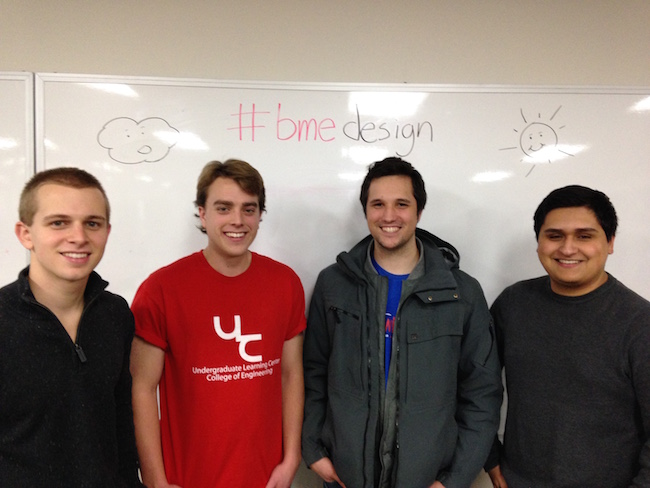Collective cell migration and the perpetual wound
This project has been secured to protect intellectual property.
Login for More InformationProject Overview
Automating a microfluidic wound healing assay is a novel way of investigating the effects of a perpetual wound in epithelial cells. Currently, the microfluidic wound healing assay features: three pipette tip reservoirs with growth media being pulled from a larger reservoir via tygon tubing, a converging three-channel PDMS microfluidic chip, a 3 mL plastic syringe, and a syringe pump. During a trypsinization, media switching to the enzymatic protease, trypsin, will allow for selective cleavage of confluent cells in the microfluidic chip. The fluid switching is controlled via solenoid pinch valves programmed through an Arduino microcontroller. The current prototype lacks a user-friendly interface and full automation with a syringe pump. The goal of this project is to create a UI with LabView to allow the researcher performing the assay to control variables such a volume and time. Furthermore, we plan to improve ergonomics and obtain a never ending (or perpetual) wound. We will continue with our system prototype and test for wound healing using various epithelial cell lines used in the lab of our client, Dr. Michael Murrell, Yale University, in collaboration with Dr. John Puccinelli, University of Wisconsin-Madison.
Team Picture

Contact Information
Team Members
- Matthew Reagan - Team Leader
- Ryan Lane - Communicator
- Ryan Rinehart - BSAC & BPAG
- Michael Martinez - BWIG
Advisor and Client
- Prof. Tracy Jane Puccinelli - Advisor
- Prof. Michael Murrell - Client
- Prof. John Puccinelli - Alternate Contact
Related Projects
- Spring 2015: Collective cell migration and the perpetual wound
- Fall 2014: Collective cell migration and the perpetual wound
- Spring 2014: Collective cell migration and the perpetual wound
